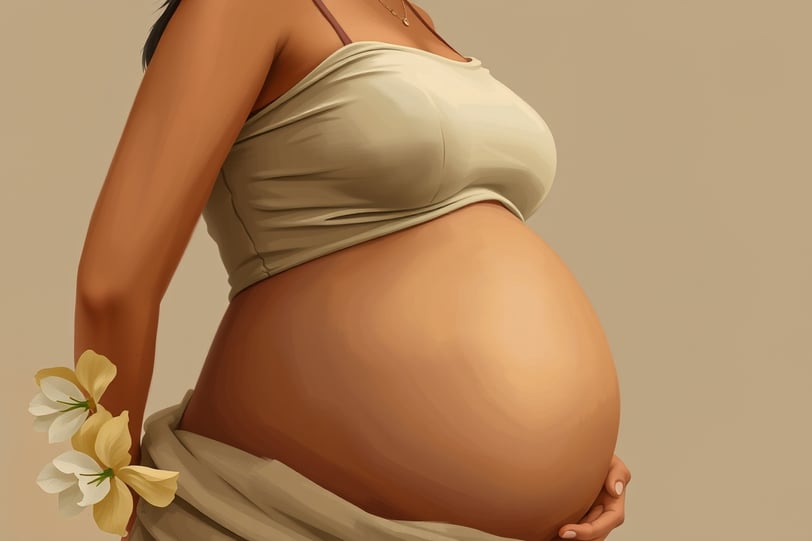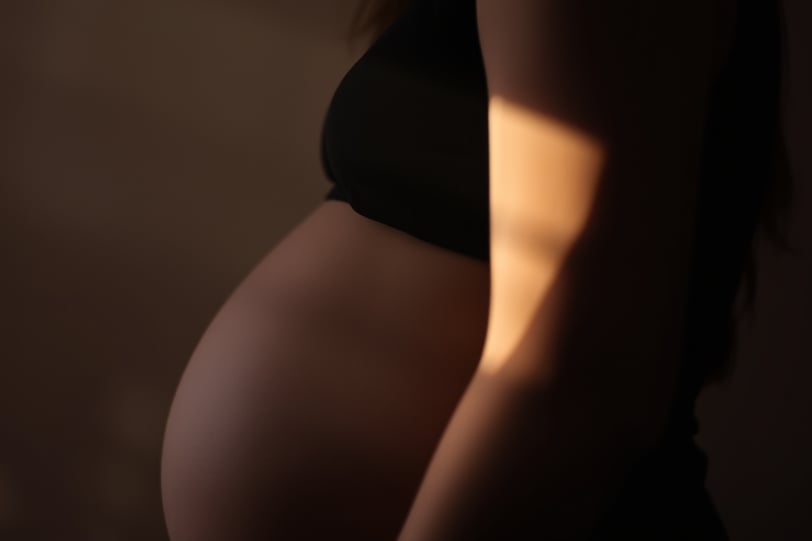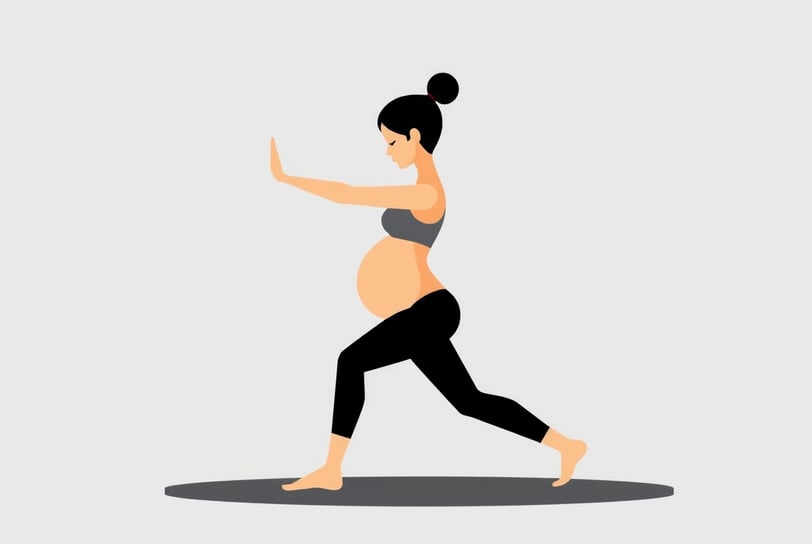The Best Fertile Days to Get Pregnant for Higher Chances of Conception
Learn how to track your fertile days to get pregnant and boost your chances of conception. Discover tips and methods for identifying your most fertile window.


If you’re trying to get pregnant, understanding your fertile days to get pregnant is one of the most important factors in increasing your chances of conception. Knowing when your body is at its peak for fertility allows you to time intercourse for the best possible results. In this blog, we’ll dive into what fertile days to get pregnant are, how to track them, and how to maximize your chances of getting pregnant. Learn how to increase your chances of getting pregnant with expert advice and tips.
What Are Fertile Days to Get Pregnant?
Fertile days to get pregnant refer to the days in your menstrual cycle when you are most likely to get pregnant. This period is when ovulation occurs, and an egg is released from the ovary. Since sperm can live inside the female reproductive tract for up to five days, having intercourse during the fertile days to get pregnant increases the chances of sperm meeting the egg at the right time.
Your fertile days to get pregnant typically span 5-6 days, with ovulation being the most crucial day. However, tracking your cycle to determine the exact fertile days to get pregnant can help you understand your body better and improve your chances of conceiving.
How to Identify Your Fertile Days to Get Pregnant


To optimize your chances of getting pregnant, it’s essential to track your menstrual cycle. Here are a few common methods to identify your fertile days to get pregnant:
1. Track Your Menstrual Cycle
The first step in determining your fertile days to get pregnant is knowing the length of your menstrual cycle. The average cycle is 28 days, but cycles can range from 21 to 35 days. Your fertile days to get pregnant are typically the 5 days leading up to and including ovulation. Ovulation usually occurs around the middle of your cycle, approximately 14 days before the start of your next period.
For example, if your cycle is 28 days, your fertile days to get pregnant might be between days 9 and 14. Keep in mind that cycles can vary from month to month, so regular tracking is important.
2. Monitor Ovulation Symptoms
Ovulation symptoms, like changes in cervical mucus and mild pelvic pain, can help you identify your fertile days to get pregnant. Just before ovulation, cervical mucus becomes clear, stretchy, and slippery, similar to raw egg whites. This type of mucus helps sperm swim more effectively toward the egg.
Some women also experience mild cramping or discomfort on one side of the lower abdomen, known as ovulation pain or mittelschmerz. Paying attention to these signs can help you pinpoint your fertile days to get pregnant.
3. Use Ovulation Predictor Kits (OPKs)
Ovulation predictor kits are over-the-counter tests that detect a surge in luteinizing hormone (LH) in your urine. This LH surge signals that ovulation is imminent, typically occurring 12-36 hours after the surge. By using OPKs, you can narrow down your fertile days to get pregnant and increase your chances of conception.
4. Track Your Basal Body Temperature (BBT)
Another effective method for tracking your fertile days to get pregnant is monitoring your basal body temperature (BBT). After ovulation, your BBT will rise slightly due to increased progesterone levels. By tracking your BBT every morning before getting out of bed, you can identify when ovulation has occurred. Though this method isn’t as precise in predicting your fertile days to get pregnant ahead of time, it’s useful for confirming ovulation after it happens.
How Long Do Fertile Days to Get Pregnant Last?


Learn useful tips on how to increase your chances of getting pregnant
Your fertile days to get pregnant typically last around 5-6 days, with the highest chances of conception occurring during the 2 days leading up to and including ovulation. This is because sperm can survive for up to 5 days inside the body, but the egg is only viable for about 12-24 hours after it is released.
To maximize your chances of getting pregnant, aim to have intercourse every 1-2 days during your fertile days to get pregnant. This will ensure that sperm are present in your reproductive tract when ovulation occurs, giving you the best chance of conceiving.
Factors That Can Affect Your Fertile Days to Get Pregnant
Several factors can influence the timing of your fertile days to get pregnant and ovulation, including:
1. Cycle Length
As mentioned earlier, not all women have a 28-day cycle. A shorter or longer cycle can affect when ovulation occurs. For example, if you have a 21-day cycle, you may ovulate as early as day 7. On the other hand, if you have a longer cycle, you might ovulate later.
2. Stress
High levels of stress can impact hormone production and may lead to irregular ovulation or even anovulation (when no egg is released). Managing stress through relaxation techniques, exercise, and proper sleep can help regulate your cycle and improve your chances of tracking your fertile days to get pregnant.
3. Age
As women age, their fertility naturally declines, and ovulation may become less predictable. Women over 35 may experience more difficulty pinpointing their fertile days to get pregnant due to changes in hormone levels and ovarian reserve.
4. Health Conditions
Certain health conditions, such as polycystic ovary syndrome (PCOS), thyroid imbalances, or endometriosis, can interfere with ovulation and make it more difficult to track your fertile days to get pregnant. If you suspect a health issue is affecting your fertility, consult a healthcare provider for personalized guidance.
Common Myths About Fertile Days to Get Pregnant


There are many misconceptions about fertility, and understanding the facts can help you avoid unnecessary stress. Let’s debunk a few common myths:
1. You Can Only Get Pregnant on Ovulation Day
While ovulation is the most critical day for conception, sperm can survive for up to 5 days inside the body. Therefore, having intercourse in the days leading up to ovulation can still result in pregnancy.
2. Fertility is Only a Woman’s Concern
While tracking fertile days to get pregnant is primarily about understanding the woman’s cycle, male fertility plays an equally important role. A healthy sperm count and motility are essential for successful conception.
3. You Need to Have Sex Every Day During Your Fertile Window
Although frequent intercourse during the fertile days to get pregnant can improve your chances, you don’t need to have sex every single day. Having intercourse every 1-2 days is sufficient to ensure healthy sperm are present during ovulation.
Tips for Boosting Your Chances of Conception
In addition to tracking your fertile days to get pregnant, here are some tips to enhance your chances of getting pregnant:
Maintain a healthy diet: Eating a balanced diet rich in vitamins and minerals supports overall reproductive health.
Exercise regularly: Moderate exercise helps maintain a healthy weight and regulate hormonal balance.
Avoid smoking and excessive alcohol: Both smoking and heavy drinking can negatively affect fertility.
Consult your doctor: If you’ve been trying to conceive for over a year (or 6 months if you're over 35), seek medical advice to rule out any underlying issues.
Understanding your fertile days to get pregnant is crucial for increasing your chances of getting pregnant. By tracking your menstrual cycle, monitoring ovulation signs, and using tools like ovulation predictor kits, you can pinpoint the optimal window for conception. Remember, while your fertile days to get pregnant play a vital role, overall health, lifestyle choices, and both partners' fertility are just as important in achieving pregnancy. Learn how to increase your chances of getting pregnant with expert tips by clicking here.
